

Main photo: Fishermen arriving back at Kampung Sungei Batu with the catch of the day. (Photo: CNA/Gaya Chandramohan)
SUNGAI BATU, Penang: Voters in Penang are concerned about the upcoming general election and how the result would affect their future.
A new federal government will be formed after Nov 19 when Malaysians go to the polls and depending on the outcome, it could mean the return of a controversial project from their perspective.
Known as Penang South Islands (PSI), the multi-billion ringgit project is a brainchild of Penang’s state government led by the Democratic Action Party (DAP), under the Pakatan Harapan (PH) coalition. Malaysia’s second-smallest state is seen as a stronghold for the DAP.
The PSI project aims to create three man-made islands measuring 1,821 ha near the southern tip of Penang Island to drive economic and urban development.
The three artificial islands will provide affordable housing, public beaches and parks. It is envisioned to be a game changer for the region, attracting investors and tourists while creating at least 300,000 jobs by 2050.
The project is a long-term development that could take 30 to 50 years to complete. Its objective is to transform Penang and address key challenges faced by the state, such as inadequate infrastructure for its growing population, traffic congestion and lack of jobs.
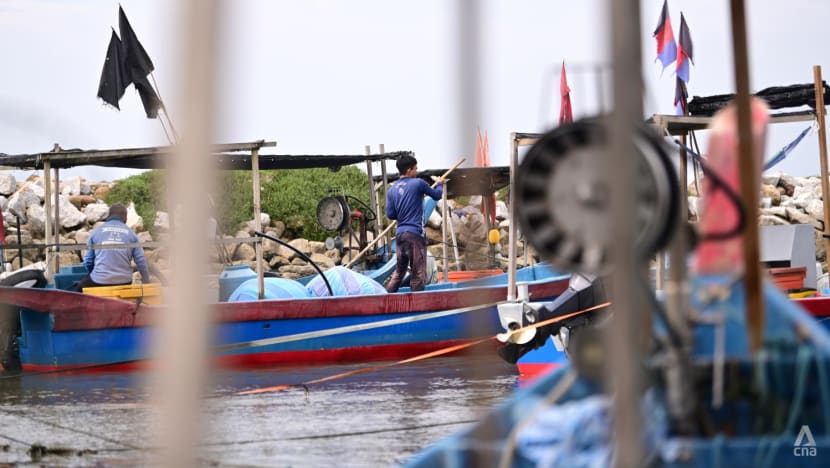
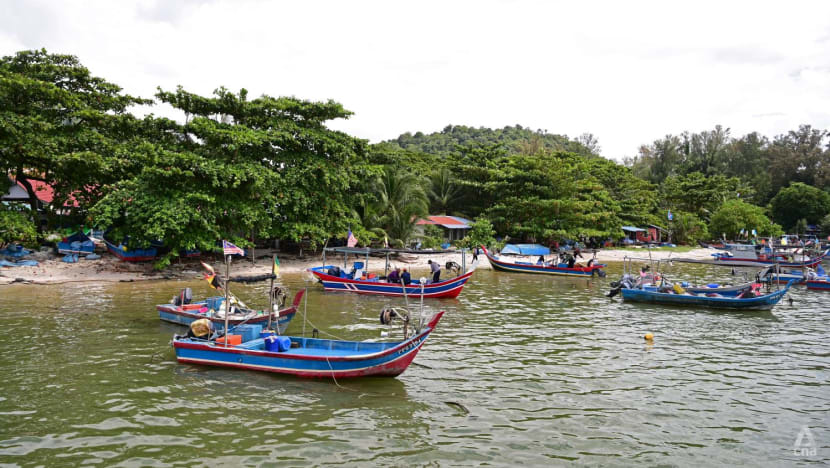
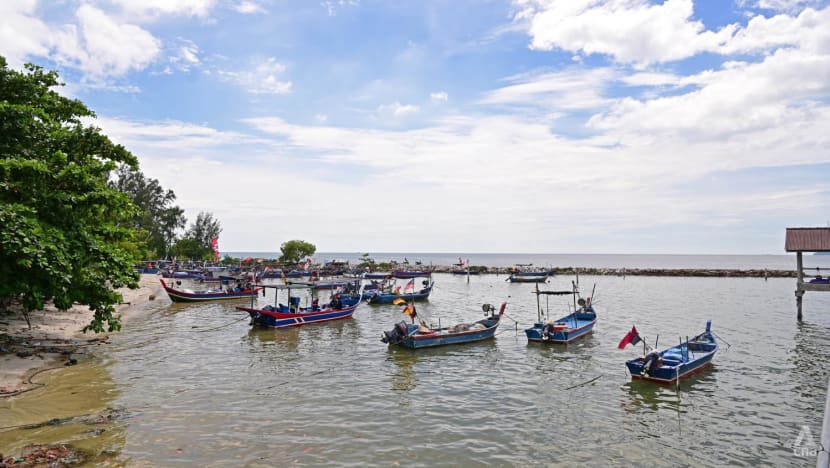




However, PSI has been met with strong opposition from environmentalists and local fishermen. The federal government has also expressed reservations.
Those on the ground fear the massive land reclamation project would harm the marine biodiversity, ruin a rich fishing ground and destroy the coastal fishing that has nurtured generations of fishermen and provided a vital food source for the people in Penang.
“The main concern is marine pollution. It would spread everywhere, affecting not only the local community but fishermen all over Penang,” said Zakaria Ismail, a fisherman from Sungai Batu in southern Penang.
The 65-year-old started fishing at the age of 18 and has spent the past 47 years catching seafood for a living. He knows where he can get big prawns by reading the moon, tides, currents and winds.
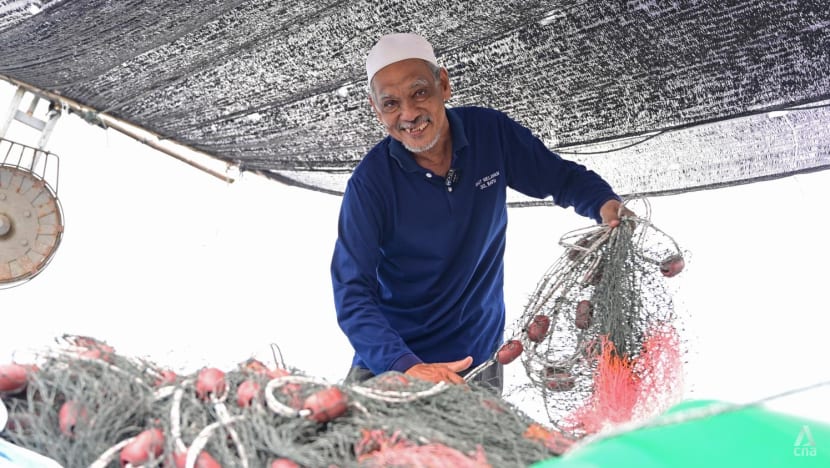
Like generations of fishermen before him, Zakaria knows how the currents flow in different parts of the sea, how the tides change from day to day, and where to cast his net to get a bigger catch.
“We mainly catch big prawns, which can fetch more than 50 ringgit (US$10.60) per kg. It’s our main income,” said the seasoned fisherman.
“Our daily catch sometimes reaches 120 kgs on one day. That’s worth 6,000 ringgit of income in one day.”
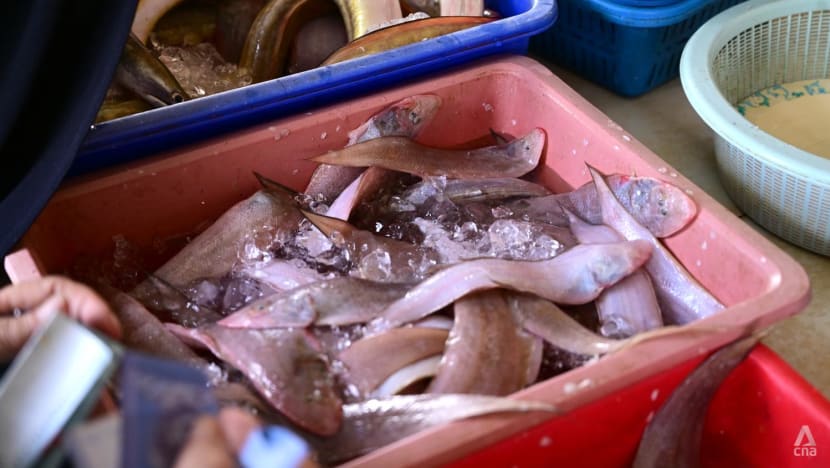
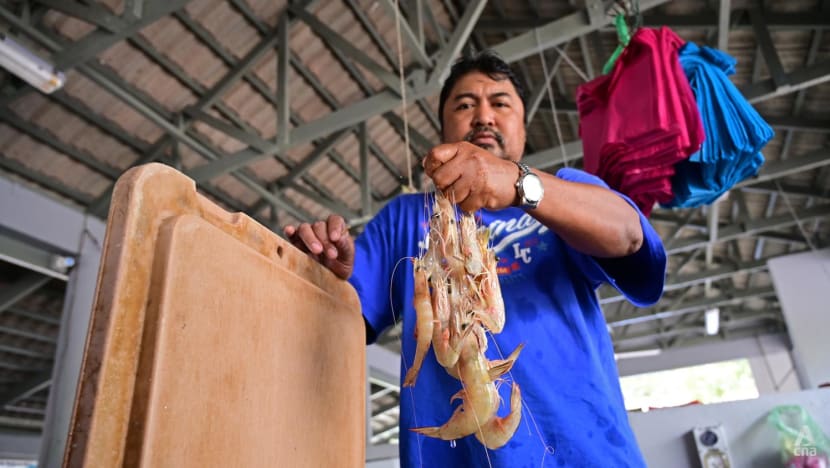
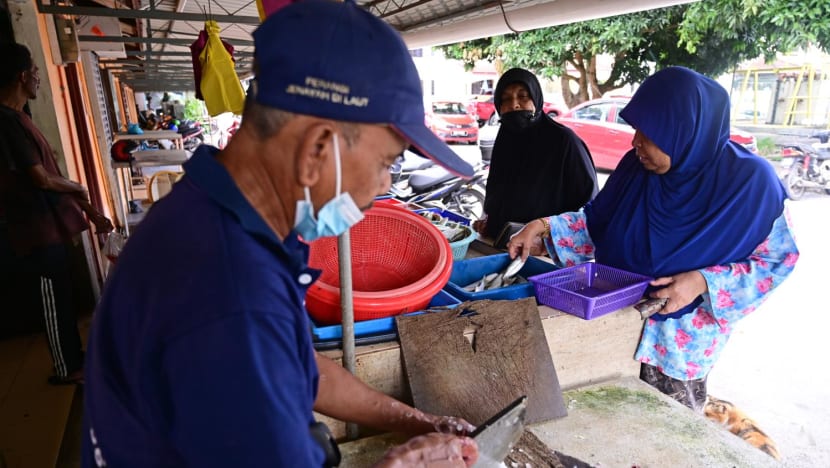
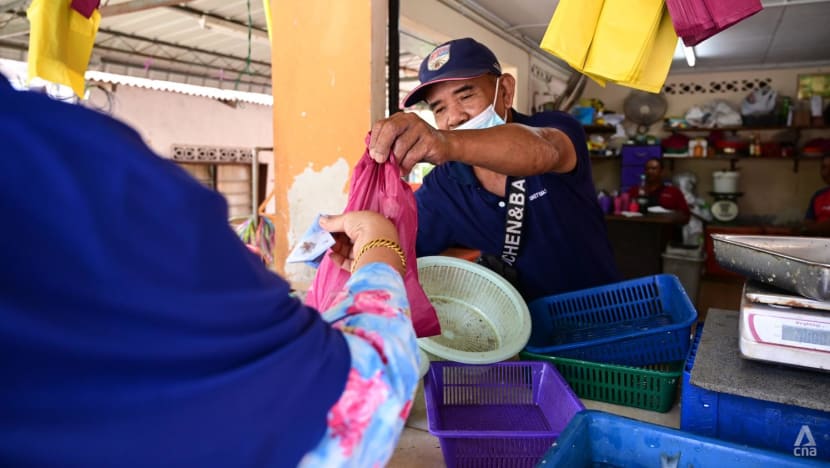





For Zakaria, who leads the fishermen’s union in Sungai Batu, the future of his fishing community is threatened by what he fears would be an environmental disaster if PSI is implemented.
His fishing village is located on the southern coast of Penang, near the planned reclamation site.
Besides big prawns, the waters are also home to crabs and mackerels. The area not only provides a vital fishing ground for some 300 fishermen in Sungai Batu but also for their fellow fishermen from other parts of Penang, Perak and Kedah.
If the catch is good all year round, Zakaria said the fishermen can earn more than 90,000 ringgit annually. However, that could change if PSI gets the green light.
“If the development of the three islands takes place, the fishing community fear it would badly affect our income because even if we go fishing in the sea, our income could be zero,” he told CNA.
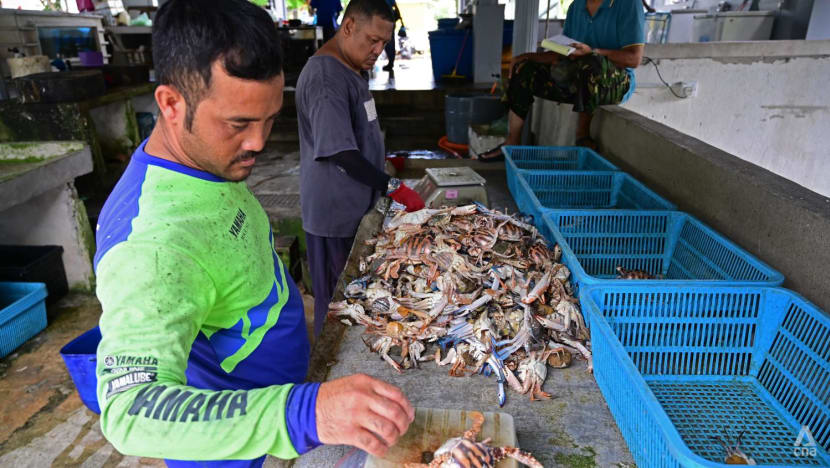
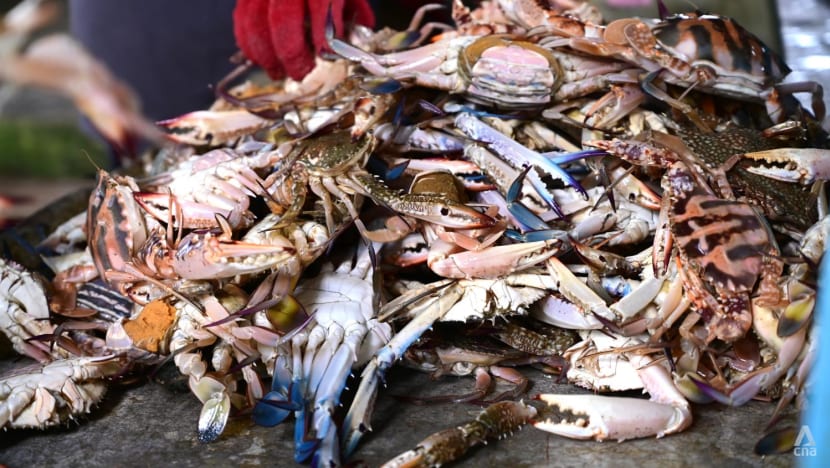
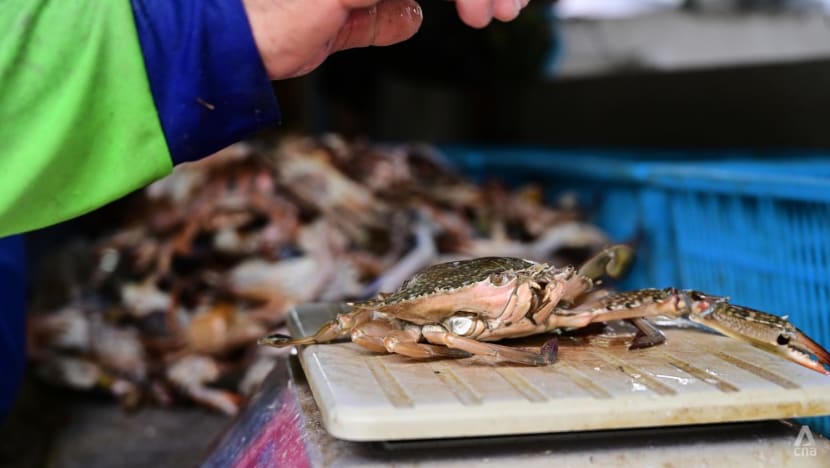




With polling day looming on Nov 19, Penang voters are concerned over which coalition will get to form a new federal government, and how a change of leadership would affect the land reclamation project.
Three major political forces are contesting in the upcoming polls. They include PH – which won the previous general election in 2018 – and its long-time rival Barisan Nasional (BN) – whose 61-year rule was severed four years ago. The third is a relative newcomer called Perikatan Nasional (PN).
Under the PH-led federal government, PSI’s Environmental Impact Assessment (EIA) was approved by the Department of Environment. The decision was reversed last year, following a change of government in 2020 that saw PN and BN seize power in Putrajaya.
A new EIA was later submitted and is being reviewed by the Department of Environment.
“If Pakatan wins, I’ll be sad and disappointed,” Zakaria said.
Meanwhile, environmentalists warned the land reclamation project could have a devastating impact on ecosystems along the coastline.
“This translates into loss of biodiversity, and the primary production important for the food web of marine life, which ultimately supports the fishing stocks and production of the area,” said Evelyn Teh, an environmental scientist based in Penang.
The specialist in marine biology and environmental management expressed her concern about the mudflats at the massive reclamation site. They are very important for plankton, she said, which is food for fish.
“Once you dredge all this out, you essentially destroy it. I don't know how you can recover something as complex as that through artificial interventions, unproven statements and promises,” Teh told CNA.
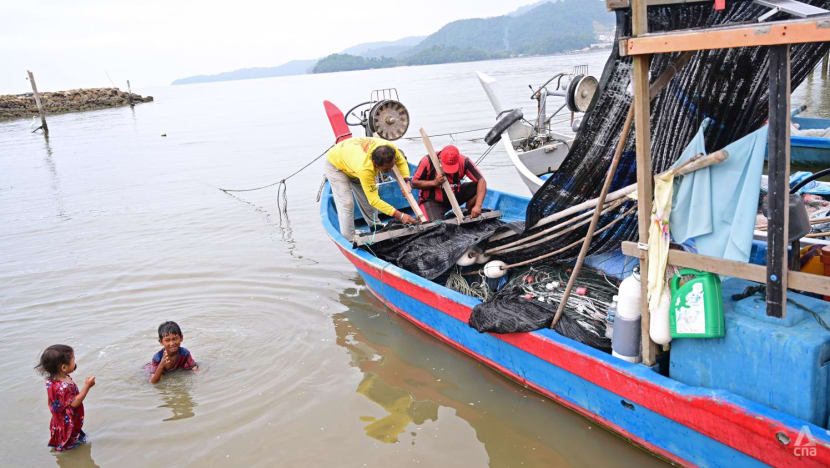
CONTRASTING VIEWS ON LAND RECLAMATION IMPACTS
Among the coalitions, there are differing narratives over how PSI will affect local residents and the environment.
In February, the Penang Infrastructure Corporation (PIC) set up by the Penang state government issued a media statement. It described PSI as a “sustainable development project”, and claimed it has “minimal impact” on fisheries
The statement also clarified that the fishing areas are beyond the site earmarked for PSI.
“Penang has always listened to the voice of the grassroots and experts,” said Syerleena Abdul Rashid.
She is PH’s parliamentary candidate for the Bukit Bandera constituency in Penang, and her party DAP is at the forefront of pushing for the land reclamation project.
If elected, she told CNA she will ensure the “continuous involvement” of scientists and experts in the EIA. She also pledged to adhere to Penang state government’s principle to only start a development project when its EIA is approved.
“As legislators, we want to enact policies and development plans that do not just retain the current job market, but also create new opportunities that are sustainable.
“Penang’s vision for development will create alternative jobs to the local jobs like fishing. This will help reduce overfishing and rejuvenate Penang’s biodiversity,” she said.
Teng Kok Liang, 42, noted that Penang is facing a land shortage.
The event manager told CNA: “As one of the rapidly developing states in Malaysia, Penang needs to expand its land bank, build roads and digital networks to improve and enhance the effort for economic development.
"With collective planning and green agendas that have been promoted in Penang, and the overseeing of the state government by NGOs and watchdogs, I believe the implementation of the Penang South Islands can become the beacon of light for Penang’s future.”
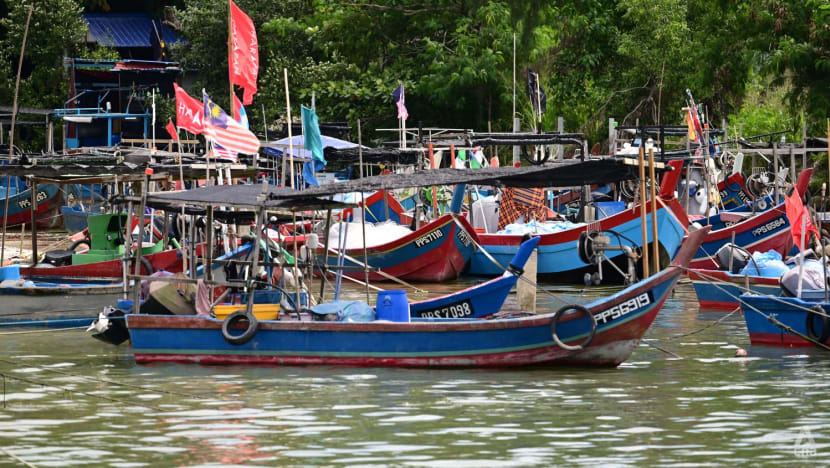
Syerleena’s perspective is disputed by Teh, the environmental scientist. The latter believes the problem is a complex one.
“I find it very amusing when someone tries to defend an indefensible project, such as the Penang South Islands, because at its core, it is a massive reclamation. There are no two ways about how disastrous it is and what environmental impact it will cause,” Teh said.
“We're not just talking about jobs of the fishermen, but also the supply of food for people of the lower income community, who can have fresh protein at an affordable price.”
Saw Yee Fung, BN’s parliamentary candidate for the Bayan Baru constituency in Penang, said no development should be realised at the expense of the people.
“Regarding the environmental impact, if we are unable to actually reduce or minimise it, then this project shouldn’t happen, shouldn’t take place,” she said.
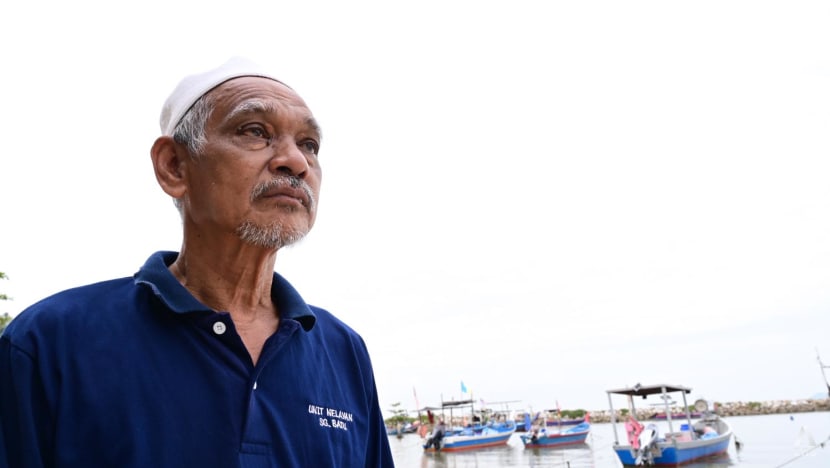
Zakaria Ismail fears the rich fishing ground around his village will be destroyed if the PSI project proceeds. Coastal fishing has nurtured generations of fishermen and provided a vital food source for the people in Penang. (Photo: Gaya Chandramohan)
In Sungai Batu, the sea in front of Zakaria is clean and calm.
Colourful flags are fluttering in the wind atop several boats, which belong to his fellow fishermen. Some of them have yet to return to the shore with the day’s catches, but the seasoned fisherman knows that soon, big prawns will be brought in.
“I will fight until my last breath, until the end of my life. As long as this project continues, I will keep fighting,” he said.
“We have to choose the right one who can fight for us,” he added, referring to the candidates for the election.
“If that person can fight for us, okay. If they can’t, forget about it.”
Source: CNA/pp(aw)
Source
Language of the news reported
Related content:
Copyright © Source (mentioned above). All rights reserved. The Land Portal distributes materials without the copyright owner’s permission based on the “fair use” doctrine of copyright, meaning that we post news articles for non-commercial, informative purposes. If you are the owner of the article or report and would like it to be removed, please contact us at hello@landportal.info and we will remove the posting immediately.
Various news items related to land governance are posted on the Land Portal every day by the Land Portal users, from various sources, such as news organizations and other institutions and individuals, representing a diversity of positions on every topic. The copyright lies with the source of the article; the Land Portal Foundation does not have the legal right to edit or correct the article, nor does the Foundation endorse its content. To make corrections or ask for permission to republish or other authorized use of this material, please contact the copyright holder.
